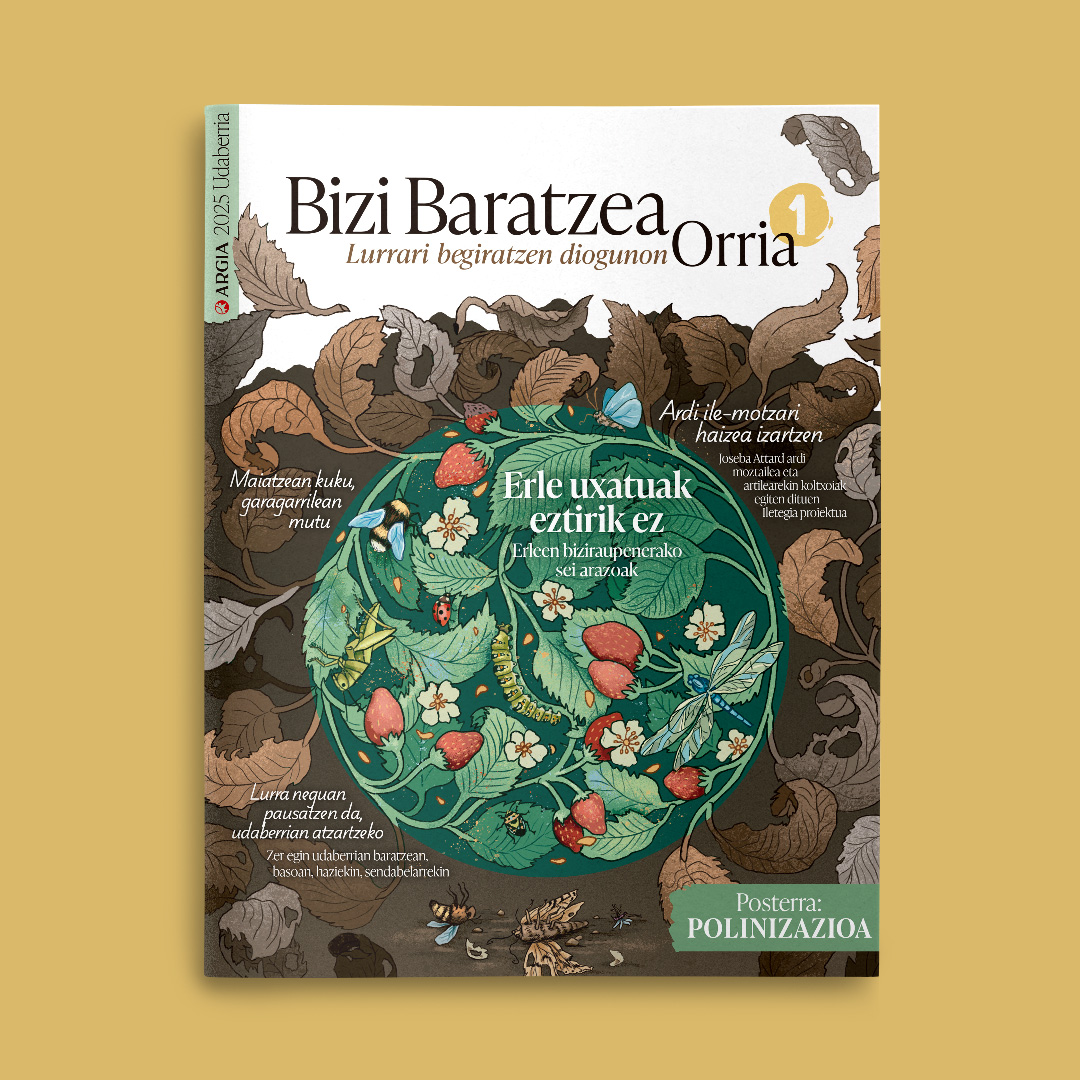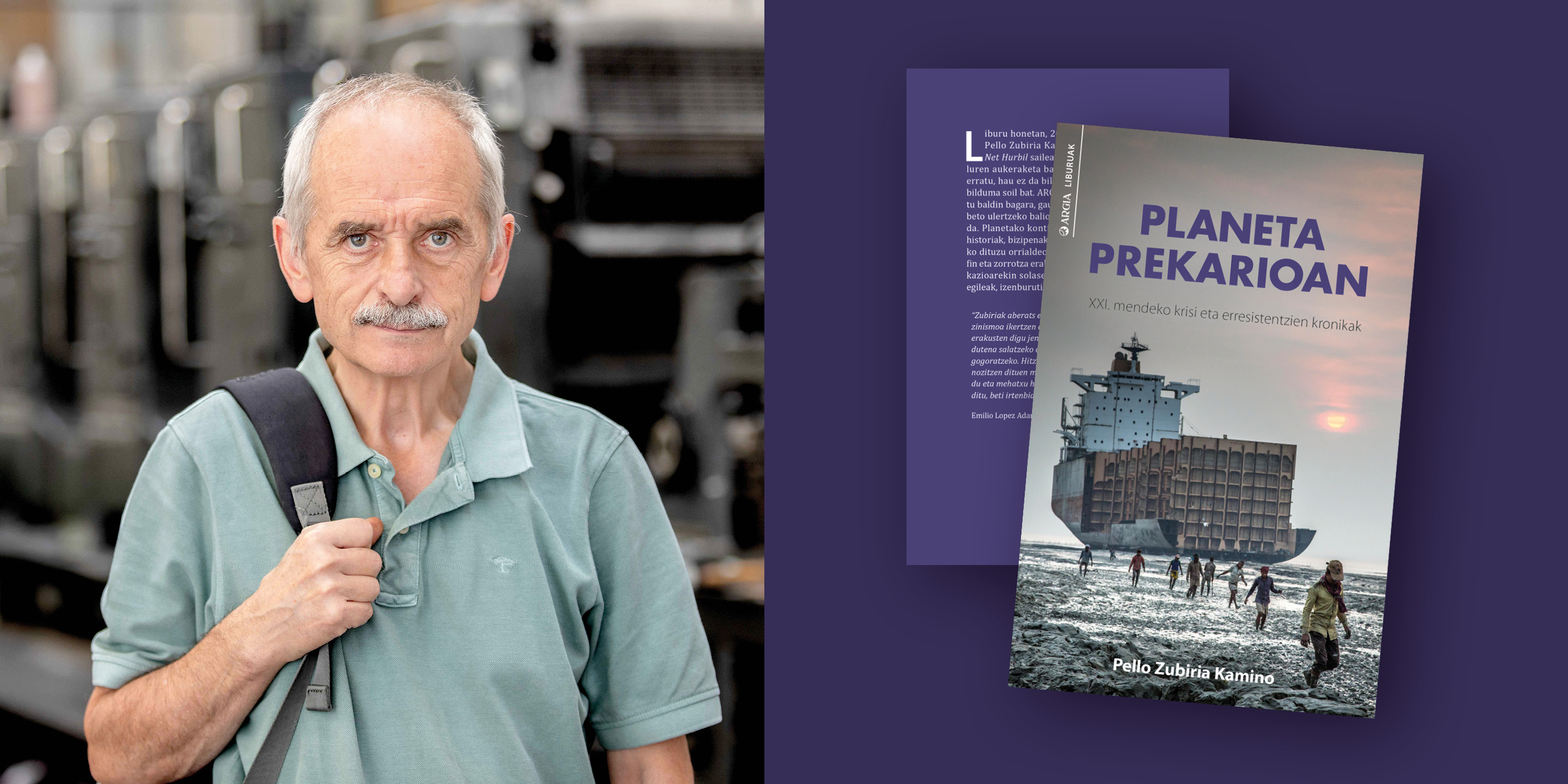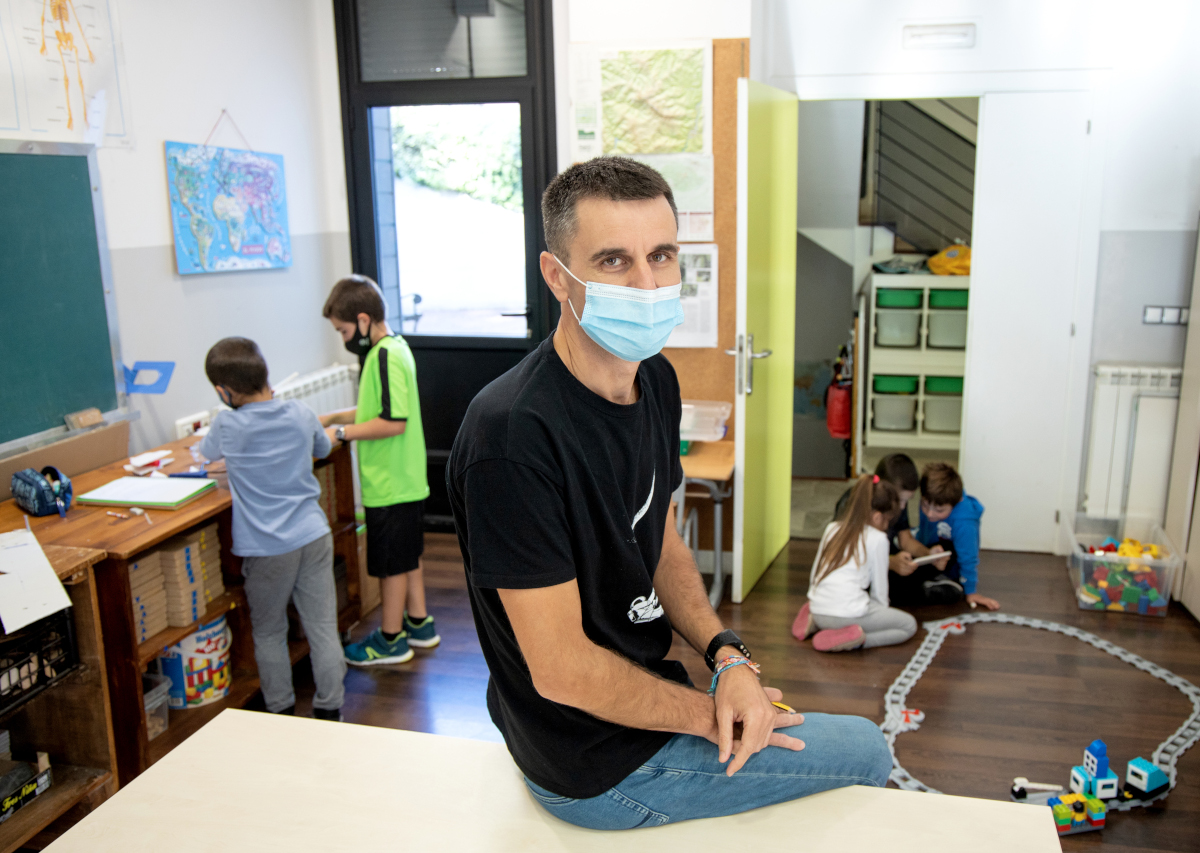Felix Sarasola: Friend led by the Great Thief
- In the Havana Green Light Bulb we have honored Felix on St. Thomas' Day, the same day he organized food every year. We have first heard the death of Ruper Ordorika's friend, with the letter of Luigi Anselmi:

Has the thief entered us today at home / in the silence of all? / Seems very skilled / that bullshit, / has no money / jewelry / or negligible goods. / Have you resorted directly to our most precious treasure / and we kept it carefully / from the small collection of friends / irreplaceable copy / has you stolen us?
The bertsos of Unai Muñoa and Ander Lizarralde have been heard, Jorge Romero has read a few tenths, Ray Fernandez has sung The absent, Daniel Chavarria has interpreted the tale of treason this year, The staggered tortilla, about the cook Pepe Olavarría who looks like Félix and dedicated to Félix. The jade duo has interpreted emotionally Eperra and, with the clover Amat and Ray, On horseback we go to mount, they are mounds that Felix liked. And the bird.
Coming out of Bonbilla Berdea, one remembers that he met Felix long ago, in the form of a cold mist, making San José in the life of Bethlehem, a bright showcase of Intxausti Furniture, next to the donkeys and living cows.
Another person has reminded the Bermeo tuna in the African Balda Sea, the cook of the boat Félix, and once a sea strike threw him in the trash. Felix couldn't swim and a Senegalese black jumped overboard. They threw a rope at them and the two were saved.
He said he didn't feel too good about religion or about racism, but Felix continued to learn about life, for example, of being an immigrant. He continued on another boat near the Caribbean Atlantic coast, where he landed once and stopped in New Orleans. From New Orleans to New York, he spent two or three years in New York, working at a paperless Brazilian food restaurant.
Felix then told him that he had reached the point he had decided to stay in the United States forever and return to the Basque Country. And he decided that he was Euskaldun, not only in his origin, but in his desire to be Euskaldun. And he returned to Usurbil with those of Mikel Laboa and Argia, Jose Anton Arze and Labatxikieta, Jose Luis Zumeta and many other friends and friends of Euskal Herria to make a day and a world.
Like the bafles of the ports of the Basque Country, by supuesto.Trabajar was in a nightclub in the Canary Islands. But you will remember more in the restaurant Beti Alai de Tolosa, in the Hotel Ticket de Lasarte and, above all, for a long time in the Black Chespín.
In Havana, in March 2001, he was hit by the lottery and in Guanabo waters, his feet lost ground beneath the sand and began to drown, believing that his friends celebrated their festivities. A Cuban saved him. Felix gave everything to his friends, to the blacks and to the Cubans, believing that he too had been given everything.
The house of Felix was the embassy for the Basques in Havana. Who cared about the beautiful palace of Zulueta and Prison, if Felix's small apartment was open!
The newcomer was always shocked:
“You’re going to eat steaks in ink!”
– In the Caribbean, there are no shipyards.
"What isn't there?" Well, I bought them by the sea.
Basque embassy and restaurant, tobacco market and Bolivarian committee, San Mamés and cathedral of the eastern organ. And the philosophy of happiness, in any corner, Felix, marvelous and happy life.
Early last summer, I drove him to Havana by car. There was a storm that night, and I told her I hadn't slept.
"Have I not slept?" He told me.
I had come the tempest in the west and he said:
“No, he’s come from Barako!
Without the desire to discuss metereologically:
“But was it strong eh?”
- Terrible!
And from Plaia Street 94, we almost reached the Vedado Tunnel, talking about time and he's the nocturnal skinning.
“Today I will not be able to sleep, but quiet.
"Is the storm gone, Felix?"
“No, you’ve stayed at home, tomorrow you’ll catch the bus to return to Barako.
“Jode, Felix, I was talking about time.
“Jujuju, you’re the street child!
That was our friend, the irreplaceable copy of the collection of friends that we used to keep.
(Supplementary information:
Emotional farewell in Havana to late cook Pelix Sarasola
Urtaro bakoitzean kaleratuko den aldizkari honek Lurrari buruzko jakintza praktikoa eta gaurkotasuneko gaiak jorratuko ditu. Formato oso berezia du: plegatutako orri handi bat da eta zabaldu ahala poster handi bat agertuko zaigu barnean. ARGIAk sostengatzen du Bizi Baratzea... [+]
Santi Cobosen ahozko testigantzan oinarrituta, espetxearen erretratu bat da Zigor Olabarriaren Txori Urdinak liburua. Santi Cobosek (Leon, Gaztela, 1968) bizitzaren erdia eman du preso. Pairatu ditu torturak, jipoiak, muturreko isolamendua, FIES sailkapena; burutu ditu ihes... [+]





















